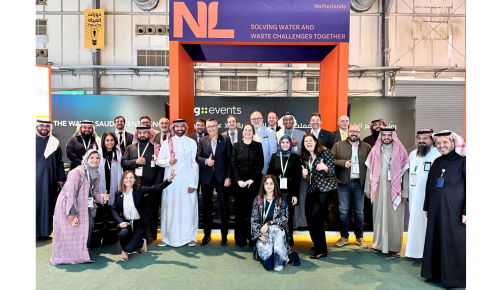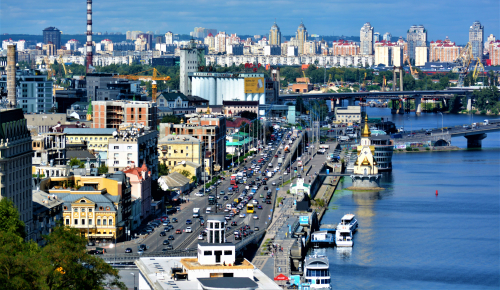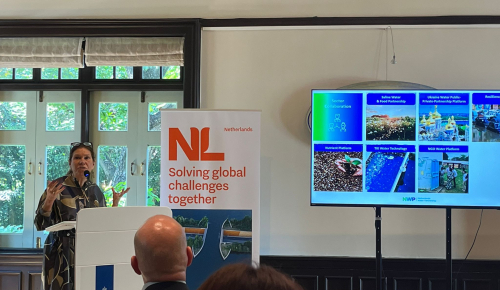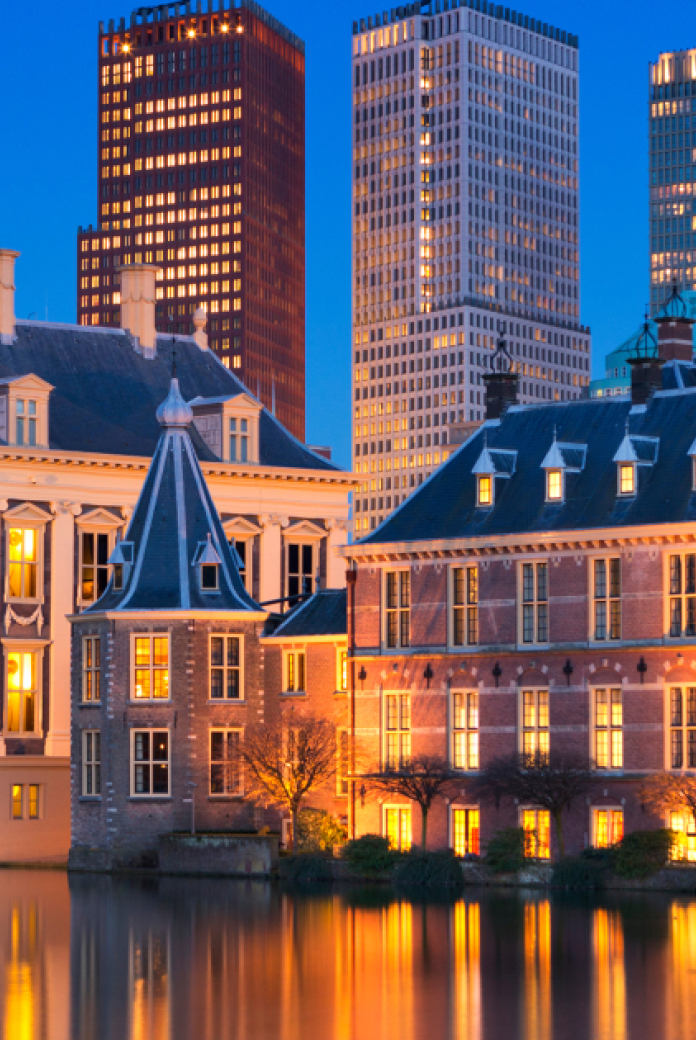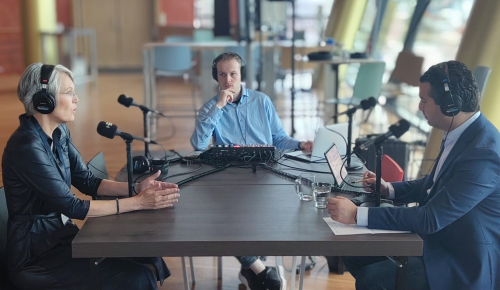News
20 February 2020Decentralised water treatment fits resilient cities
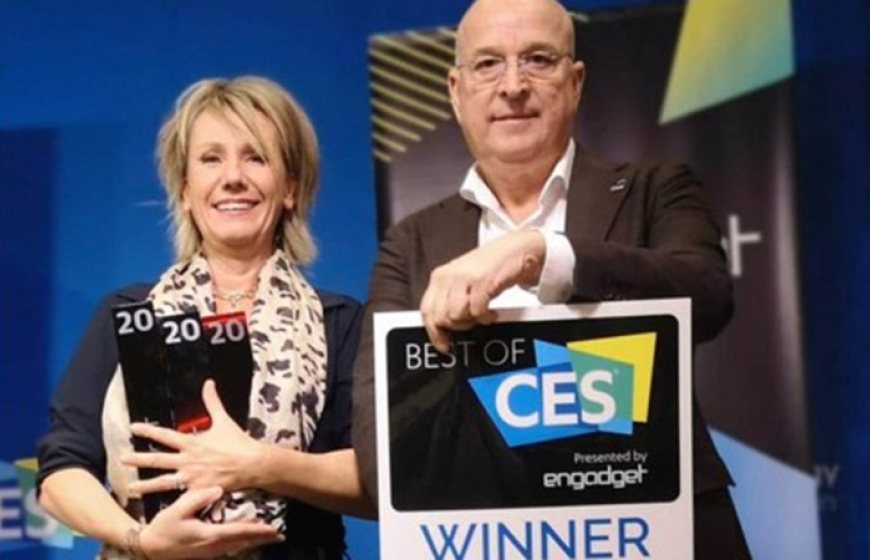
Resilient cities are constantly looking for ways of keeping too much water out and using scarce water optimally. Innovative solutions for decentralised water treatment, with 45 percent water savings, fit this goal perfectly. This explains why the Dutch start-up Hydraloop was recently named Best of the Best at CES 2020, the global stage for innovative consumer technologies in Las Vegas. CEO Arthur Valkieser shares his views and ambitions on water technology and resilient cities.
‘Rain is the main source of water on the entire globe. Freshwater can only be captured from rainfall on land at the rate of 100,000 cubic kilometres per year. Intensive urbanisation, deforestation, water diversion and industrial farming are causing the earth’s surface to dry out and groundwater levels to drop. The United Nations expects our planet to have 9.7 billion inhabitants by 2050, with a concomitant 20 to 30 percent increase in the demand for water. All too often, water is considered as a cheap resource and wastewater disposable. This thinking must change for water is our ‘Blue Gold’. We are using more water than nature can provide and with groundwater levels dropping, we have to pump ever deeper. That is why decentralised wastewater treatment is such a great idea. Let's face it, drinking water comes out of the shower, it runs down your body and after that, we call it wastewater. Isn't that a shame? We can easily collect and upgrade this water to a quality that is good enough to be used again for our toilets, washing machines and gardens. That is where Hydraloop comes in. Our device recycles 85 percent of all domestic water used, it reduces water consumption and sewage emission by 45 percent and lowers energy consumption by 600 kWh per year.
Water in attractive cities
This domestic water recycling system is absolutely relevant for resilient cities. They want to protect themselves from the threats posed by too much, too little or too polluted water while at the same time wanting to be an attractive place to live and work. This includes the comfort that water brings. Nobody wants to feel bad when taking a shower. However, limited availability of drinking water in various places in the world is a reality and, in these areas, households must reduce their drinking water consumption now.
Decentralised treatment offers the solution for this home reduction since residents can use as much water as they are used to. As the water is treated and reused, they will use far less and therefore end up paying for just over half the amount. Our estimates show that our system will allow households to reduce their total water consumption by about 45 percent. This change would largely make these households self-sufficient, which is also a key characteristic of resilient cities. Solutions such as Hydraloop will achieve sustainable yet comfortable water usage.
In new build homes, domestic recycling should be considered in the same way as energy recycling. More and more houses are being fitted with renewable sources of power rather than oil or gas generated power, so why not include a water recycling system? After all, the extra costs in terms of piping and connections are minimal. I believe at some point, new houses will be delivered with these types of systems and individual wastewater treatment will become just as common as washing machines, fridges and stoves. In fact, we are currently discussing the prospect of decentralised wastewater treatment with several property developers. Our ambition is that in 20 years time, all new build houses will have decentralised water recycling.
Footprint and payback time
The advancement of this domestic water treatment primarily depends on the increasing climate change awareness and the intention of people and organisations to reduce their water footprint. Of course, the payback time is also important. The return of investment depends on the costs of installation and the drinking water and sewage treatment charges. The latter two are relatively low in the Netherlands and treatment charges are not linked to drinking water consumption, which is the case in Germany, for example, where the drinking water price is higher. So, if you use 45 percent less drinking water, the costs for water and purification will decrease accordingly. This leads to a payback period of five to eight years, comparable to solar panels. In the Netherlands the payback period is around 10 years, depending on the situation. In recent years, linking drinking water consumption to treatment charges has been proposed more than once in the Netherlands, and I am strongly in favour of it. Governments, citizens, companies and other building owners have their own roles and responsibilities to contribute to urban resilience and decentralised water treatment can have a valuable impact.
Of course, in many developing countries and large cities it is unrealistic to aim for a Hydraloop in every house, at this point in time at least. That is why we and the World Bank are exploring means to make our technology available in these countries in a few years' time, at lower cost and in collaboration with local companies and organisations.
Happy with growing pains
Our recent success and the huge boost from the CES in Las Vegas have meant that we have been very busy, and we foresee rapid growth. Do we suffer from growing pains? Certainly, but it makes us very happy! Our most important obstacle was to find a good combination of purification techniques without membranes or filters. We found it after years of research, development and testing. Upscaling is now primarily a matter of organising our growth in a smart and sustainable way.’
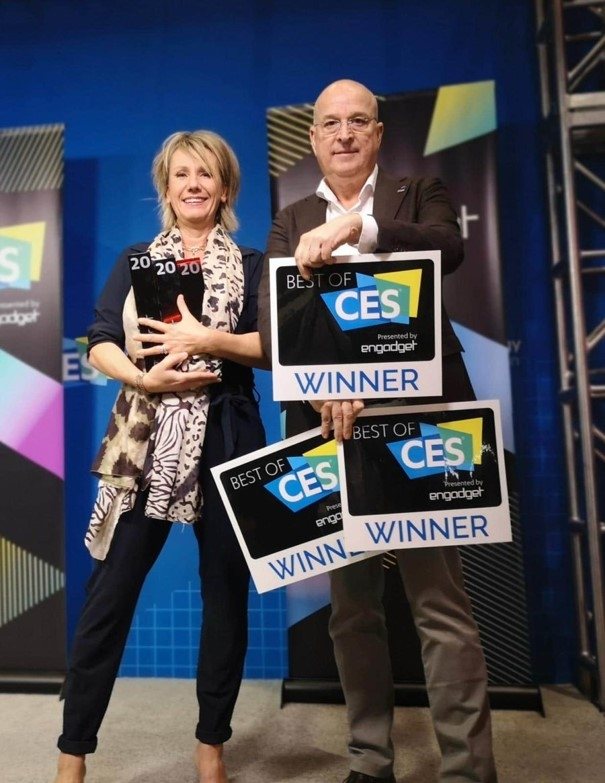
Opportunities for water technology in resilient cities was the main theme at a special session organised by NWP’s Tim van de Staaij at WaterLink 2020 in Leeuwarden on 16 January. Arthur Valkieser was one of the speakers. Tim van der Staaij presented new developments in resilient cities, current programmes and opportunities for innovative water technology. He also addressed the example of small scale, decentralised treatment processes closer to residents, and the reuse of water in urban production processes.
For more information about NWP’s activities on urban resilience, please contact our colleague Tim van de Staaij at t.vandestaaij@nwp.nl.
Featured NWP members: Hydraloop
